In preparing a new volume of essays titled Who Owns America? A New Declaration of Independence (1936), Allen Tate and Herbert Agar sought to extend the political argument for agrarianism beyond what had been laid out in the infamous manifesto I’ll Take My Stand: The South and the Agrarian Tradition (1930). I’ll Take My Stand, which had foregrounded the “Southern way of life,” continues to be rightly criticized by scholars (more precisely, ritually flogged) for glossing over the South’s plantation heritage as well as the region’s own complicity in industrialization (facts some contributors had noted, but the sense became that the “Twelve Southerners” were all of one mind). Even in Who Owns America?, some contributors still clung to “the South” as a region especially hospitable to the agrarian way—John Crowe Ransom and Donald Davidson, most prominently. Others, such as Allen Tate and Herbert Agar themselves, focused more on the feasibility of agrarianism as a political alternative to both communism and “the friends of Big Business.”
In the final essay of the volume, however, contributor Hilaire Belloc took a quite different approach to the argument for agrarianism. Belloc—an Anglo-French writer, sometime politician, and Roman Catholic, who along with G.K. Chesterton advocated for “distributism” in England, the re-distribution of land and the means of production back to small communities—chose to focus in his piece on “The Modern Man.” This title makes one assume he will discuss the by then predictable topics of modern man’s alienation and aimlessness in the industrialized world, but the essay turns on the loss of certain “ancient doctrines” rather than on broad laments regarding the effects of industrialism. The burden of the essay, Belloc admits, is to persuade the modern reader that there is a connection between the loss of economic freedom and the loss of what he calls the “old religion.” For him, the ancient doctrines are not mere sentiments: he notes the doctrines of free will, the immortality of the soul, the Incarnation, and the final judgment for right and wrong done in this world.
Perhaps Belloc’s most convincing point occurs when he relates the modern person’s lack of belief in the doctrine of free will to the lack of belief in the possibility of economic freedom. Not only has the “concept of inevitable tendencies, of an inevitable chain of cause and effect” superseded free will, but it has all but eliminated examples of economic freedom that might have sparked memory and affection, helping us to recover sound economic practices. That a person is free to choose right and wrong and that one’s choices may have deleterious social and economic consequences are realities difficult to grasp without a religious concept of free will. In its place—though Belloc does not put it this way—we have the “iron cage” of economic determinism, Max Weber’s image at the end of The Protestant Work Ethic and the Spirit of Capitalism (the phrase is more Talcott Parson’s, whose English translation took some liberty with Weber’s original thought).
Belloc’s piece, admittedly, is brief, perhaps because he is relying on arguments that others had made in the volume. For instance, when he notes that the “reinstitution of private property” would be the “material test” of change, it remains somewhat unclear how exactly this would signal a change in religion, not just economics. But Tate had argued for a definition of property as relative, meaning property entails personal responsibility and would include the liberty to use or sell the thing owned. Property, in this sense, is an exercise in free will. If Belloc is relying on Tate’s argument, the full religious import of it is somewhat lost in his concluding essay.
Belloc implies that the Word made flesh (John 1:14) could be the missing piece, without which any “agrarian way”—indeed, any real dependence on nature at all—may be doomed to failure.
Yet, though some of the explicit connections may be missing, what is valuable about Belloc’s piece is his stating, in fairly exact terms, the particular religious doctrines that are absent from the modern world. For if the “Incarnation has gone by the board,” an “opinion” or preference to which one may or may not subscribe, then communities that seek to practice neighborliness, cultivate kindness toward the land, and develop healthy economic relationships may falter for lack of a rigorous belief system or the consistent presence of the church. That is, Belloc implies that the Word made flesh (John 1:14) could be the missing piece, without which any “agrarian way”—indeed, any real dependence on nature at all—may be doomed to failure. Accordingly, mere reliance on the philosophy of great thinkers—even Chesterton and Belloc, for instance—is not enough.
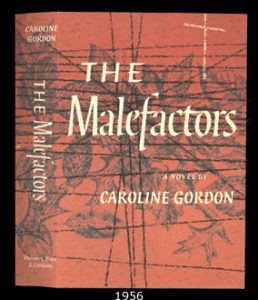 I want to elaborate on this point, first by examining a novel by Caroline Gordon, whose early novels were praised by critics as model “Southern agrarian” texts, then by discussing more explicitly—though still through some literary texts—what this foregrounding of religion would look like in a practical context. In her late novel, The Malefactors (1956), Gordon senses the connection between agrarian practice and Christian truth. While the book is not without its idiosyncrasies (foregrounding the suicide of a homosexual poet and concluding on a somewhat awkward antifeminist message), it includes a fictional rendition of Dorothy Day’s and Peter Maurin’s Catholic Worker movement (the “Green Revolution” in the novel) through Catherine Pollard, who runs a soup kitchen in New York City, and through Joseph Tardieu, who in the novel’s world helped to establish the working principles of the movement but is now an old man just alert enough to lend wisdom to the protagonist Tom Claiborne. Claiborne, a native Tennessean, has had a bad case of writer’s block, and, to cope, he begins an affair and attempts to restart his career in New York City, apart from his wife Vera and their “play farm” in Pennsylvania (“This phony farming is hard to take,” he confesses to a friend, “when you know the real thing, like I do”). Gradually (and perhaps too predictably), he becomes dissatisfied with his choices and grows more curious about his wife’s location, which his friends have kept from him, and about the work Catherine is doing across the city.
I want to elaborate on this point, first by examining a novel by Caroline Gordon, whose early novels were praised by critics as model “Southern agrarian” texts, then by discussing more explicitly—though still through some literary texts—what this foregrounding of religion would look like in a practical context. In her late novel, The Malefactors (1956), Gordon senses the connection between agrarian practice and Christian truth. While the book is not without its idiosyncrasies (foregrounding the suicide of a homosexual poet and concluding on a somewhat awkward antifeminist message), it includes a fictional rendition of Dorothy Day’s and Peter Maurin’s Catholic Worker movement (the “Green Revolution” in the novel) through Catherine Pollard, who runs a soup kitchen in New York City, and through Joseph Tardieu, who in the novel’s world helped to establish the working principles of the movement but is now an old man just alert enough to lend wisdom to the protagonist Tom Claiborne. Claiborne, a native Tennessean, has had a bad case of writer’s block, and, to cope, he begins an affair and attempts to restart his career in New York City, apart from his wife Vera and their “play farm” in Pennsylvania (“This phony farming is hard to take,” he confesses to a friend, “when you know the real thing, like I do”). Gradually (and perhaps too predictably), he becomes dissatisfied with his choices and grows more curious about his wife’s location, which his friends have kept from him, and about the work Catherine is doing across the city.
“Chesterton and Belloc is fine, bud it dakes more those dose two. It dakes Christ.”
When he visits the soup kitchen to answer questions about his friend the homosexual poet for a nun who is writing a book about him, he meets Tardieu, senile but suddenly lucid if one asks him about “Chesterton and Belloc.” “Chesterton and Belloc is fine,” he says to Claiborne, “bud it dakes more those dose two. It dakes Christ.” Tardieu then turns on Claiborne: “what droubles you?” “The world . . . and the flesh—and the Devil,” he responds. Asking if he has read St. Augustine, Tardieu insists that, though he is reading, he is not listening. For what? The answer, they both know, is obvious in terms of Augustine’s Confessions: Claiborne has failed to truly hear “Tolle, lege,” Augustine’s famous “take and read.” Though he knows Augustine, he does not know the Word. He has closed himself off from hearing it, much less following where it may lead.
Later, after Claiborne has gone to Catherine’s farm where Vera is in charge of taking care of Tardieu, he realizes he has never understood his wife’s Catholic faith. “Surely you know that Vera is in the Church,” Catherine says to him, “She was baptized when she was a child.” “I didn’t know that, . . . I didn’t know anything,” he responds, referring to his wife’s visit during their honeymoon to the crypt at Clermont cathedral to pray before a shrine of the Black Virgin. Nor, it is implied, has he ever truly understood Catherine’s religion. The poor and homeless she serves are “not offal,” they are “Christ,” and “We must be Christ to them.” The farm, in this sense, is not a commune but a place of Christian peace and humble service: Claiborne wonders what his wife is “doing in this bog, with no company except that of a deformed child” (Gordon’s emphasis). The answer, for these faithful Catholics, would be that they are following their instincts cultivated by the church to serve the helpless and poor in and by way of God’s creation.
Why did God become a man, and what does this mean for creation today?
Catherine never explains this connection to Claiborne—perhaps because the connection, understood by faith in Christ, is, in truth, mysterious. Indeed, it opens onto the mystery of the Incarnation itself: why did God become a man, and what does this mean for creation today? Beyond mere re-affirmation of creation as “good,” the Incarnation in all its mystery calls believers to empty themselves by faith for the sake of love for Christ. And what better way to do this than to participate in God’s creation? The saying goes that the Bible records what happens between the trees—from the two trees in the Garden of Eden to the Tree of Life in Revelation. Christians seek to participate in this coming kingdom, even to speed its coming through good work.
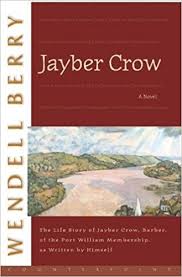 Some of the most important lines in Wendell Berry’s Jayber Crow are when the narrator realizes that the Incarnation undergirds his own commitment to nature’s way. Amidst doubts and fears for his community, Jayber comes to realize that God “forebear[s] to reveal His power and glory by presenting Himself as Himself, and must be present only in the ordinary miracle of the existence of His creatures. Those who wish to see Him must see Him in the poor, the hungry, the hurt, the wordless creatures, the groaning and travailing beautiful world.” In this passage, it seems to me that “presenting Himself as Himself” is the operative phrase. Believers in the church learn to see and accept Him as Himself, not as an impersonal force, but as a Person who wants to relate personally to His people. Implied in Jayber’s “Himself as Himself” is the need, then, to cultivate Christian vision.
Some of the most important lines in Wendell Berry’s Jayber Crow are when the narrator realizes that the Incarnation undergirds his own commitment to nature’s way. Amidst doubts and fears for his community, Jayber comes to realize that God “forebear[s] to reveal His power and glory by presenting Himself as Himself, and must be present only in the ordinary miracle of the existence of His creatures. Those who wish to see Him must see Him in the poor, the hungry, the hurt, the wordless creatures, the groaning and travailing beautiful world.” In this passage, it seems to me that “presenting Himself as Himself” is the operative phrase. Believers in the church learn to see and accept Him as Himself, not as an impersonal force, but as a Person who wants to relate personally to His people. Implied in Jayber’s “Himself as Himself” is the need, then, to cultivate Christian vision.
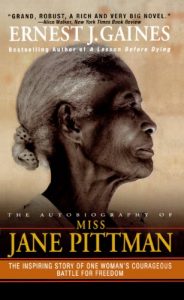 Similarly, in Ernest J. Gaines’s novel The Autobiography of Miss Jane Pittman, Jimmy realizes that the younger generation, many of whom have left the church to participate in the Civil Rights Movement, still need the prayers and support of those in the church: “We need your prayers, we need you to stand by us, because we have no other roots.” Here Jimmy seems to recognize that the church underwrites the courage that helps them take a stand in the town for integration. The church, though flawed in human history, is sanctified by being the mystical body of Christ, and it prepares believers to see Christ in the world. The sacraments train believers to receive the seeds of love in Christ and multiply the fruit of good deeds. In any community, the church can stand as a solid presence in a world driven to and fro by selfish ambition and vain conceit.
Similarly, in Ernest J. Gaines’s novel The Autobiography of Miss Jane Pittman, Jimmy realizes that the younger generation, many of whom have left the church to participate in the Civil Rights Movement, still need the prayers and support of those in the church: “We need your prayers, we need you to stand by us, because we have no other roots.” Here Jimmy seems to recognize that the church underwrites the courage that helps them take a stand in the town for integration. The church, though flawed in human history, is sanctified by being the mystical body of Christ, and it prepares believers to see Christ in the world. The sacraments train believers to receive the seeds of love in Christ and multiply the fruit of good deeds. In any community, the church can stand as a solid presence in a world driven to and fro by selfish ambition and vain conceit.
Is it always this solid presence? Certainly not. Yet the writers mentioned here suggest that it can and should be. One can make all kinds of associations between Christianity and a serious commitment to tending nature—It’s there in the Bible! Read the Old Testament!—yet, to have in mind the church, for some, seems to break down these associations in historical reality. Some may say, when has the church in time ever been “agrarian?” Or others will say, can you please show me which denomination is best suited for taking up the cause of the earth? But this, I think, is to misunderstand the church, its purpose as witness to the truth rather than as an immediate solution to our social and economic problems. No church in time is perfect—as I said above, its members are being sanctified into the body of Christ. And the church does not expect (though certainly it hopes for it) that all will come to Christ—rather, it testifies to the Word made flesh and, knowing some will reject the good news, recognizes its own marginality yet continues to believe in the centrality of its message to all communities. This means that the church always runs the risk of irrelevance. It does not take up the work of environmental stewardship or economic responsibility merely because it is popular or because it will appeal to nonbelievers.
Rather, by ordering priorities rightly, the church stands first for the objective truth of Jesus Christ as the incarnate the Son of God, and, as a corollary, commits itself to sacrificial love for His creation. This order of things, it seems to me, is essential for the long-term existence of any kind of agrarian practice, though the surrounding community may not recognize it, and though local congregations will inevitably fail to live up to their purpose. The Incarnation is a “gift half understood,” in T. S. Eliot’s phrasing, waiting to be received and multiplied as the true reality, the Word that Christians believe holds all things together. Belloc was right to list specific Christian doctrines that are missing from the modern world. He was correct to imply that sound economic practice depends on these teachings. He would likely agree that we have got to go beyond Belloc, Chesterton—and yes, even Wendell Berry—that we might embrace Christ and His church. Then, empowered by the Word and committed to a living tradition, believers participate in the good that is possible in this moment, a time of immense waste and economic confusion: responsible cultivation of the earth and service to the poor because they are Christ.


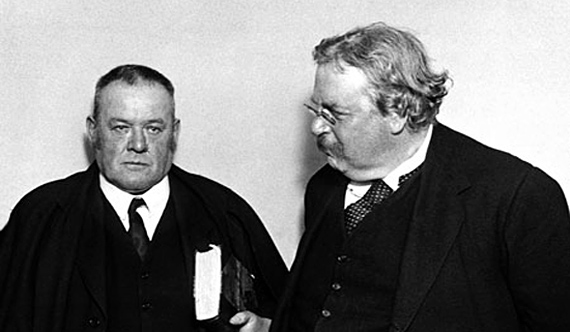


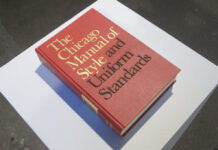





“I’ll Take My Stand, which had foregrounded the ‘Southern way of life,’ continues to be rightly criticized by scholars (more precisely, ritually flogged) for glossing over the South’s plantation heritage as well as the region’s own complicity in industrialization (facts some contributors had noted, but the sense became that the “Twelve Southerners” were all of one mind).”
Conveniently, though, this “glossing over” also serves as an excuse for modern scholars to dismiss the book’s primary arguments. See the introduction to the latest edition, for instance, which tries to reduce the entire book to a complaint against the increasing power of blacks and women. Much better to follow Berry’s lead here: while there may be what we today call racism in the book (the term wasn’t in common usage at the time it was written) its arguments are by no means dependent on it.
I’ll piggy back on Rob G’s comment, to say that traditional Southern culture itself, even antebellum, was not dependent on racism. M.E. Bradford had it right, I think, when he said that the presence of slaves and then free blacks, kept the South conservative longer than other regions, but did not make it so. That innate conservatism that has been present in the South comes from the early 17th century Virginia, before slavery was an institution, and then spread throughout the South. (“From Virginia sprung the Southern mind.”) And the good things of traditional Southern culture, even with slavery, far outweighed the bad. Agrarianism is not only possible in the South, of course, but it does have a rich agrarian heritage and clung to it the longest.
Enjoyed the essay. The last bit, especially.
Comments are closed.